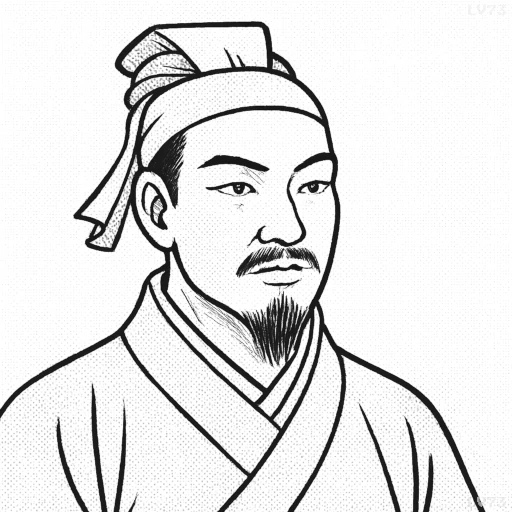“Now the reason the enlightened prince and the wise general conquer the enemy whenever they move and their achievements surpass those of ordinary men is foreknowledge.”

- 544 BC-496 BC
- Born in China
- Military strategist, military strategist
table of contents
Quote
“Now the reason the enlightened prince and the wise general conquer the enemy whenever they move and their achievements surpass those of ordinary men is foreknowledge.”
Explanation
In this quote, Sun Tzu attributes the success of great leaders—both military and political—to their ability to predict the future and foresee the actions of the enemy. The concept of foreknowledge refers to the strategic advantage gained through intelligence, planning, and anticipation. An enlightened leader or wise general doesn’t just react to events as they unfold, but actively forecasts the likely outcomes of various decisions, based on a deep understanding of the situation, the enemy, and the environment. This foresight allows them to act decisively and with precision, ensuring that they are always one step ahead. Their actions are informed by knowledge, preparation, and careful analysis, which enables them to avoid unnecessary risks and exploit opportunities at the right moment.
The principle of foreknowledge is directly applicable in modern contexts, including business, politics, and sports. In business, companies that anticipate market trends and consumer behavior often have a competitive edge. Apple’s success, for instance, is partly due to its ability to foresee technological advances and consumer preferences, allowing it to introduce products like the iPhone ahead of competitors. In politics, leaders who can predict the moves of other nations or understand the likely reactions of their populace tend to make more informed and successful decisions. For example, Winston Churchill in WWII often made decisions based on a clear understanding of both his own capabilities and the potential actions of the Axis powers, allowing him to make timely and strategic moves. In sports, coaches who can predict an opponent’s tactics or foresee a game-changing moment have a better chance of achieving victory. Sun Tzu’s emphasis on foreknowledge stresses the importance of proactive rather than reactive strategies in achieving success.
Historically, leaders with great foresight have often achieved remarkable victories. Alexander the Great‘s campaigns were driven by his deep understanding of the political and military landscapes he conquered, enabling him to make swift, bold decisions that kept his enemies off-balance. Similarly, General Dwight D. Eisenhower’s foresight during D-Day allowed him to correctly anticipate the movements of Nazi forces, ensuring the success of the Allied invasion. Napoleon Bonaparte, too, was renowned for his ability to predict the actions of his enemies, such as during the Battle of Austerlitz, where he used deception and strategic positioning to force the enemy into a vulnerable position. These historical examples underscore that foreknowledge—gained through analysis, preparation, and strategic thinking—remains one of the most powerful tools in the hands of leaders across time. Sun Tzu’s insight into the importance of anticipating outcomes is timeless, showing that success often depends not on strength alone, but on the ability to predict and prepare for the future.
Would you like to share your impressions or related stories about this quote in the comments section?

